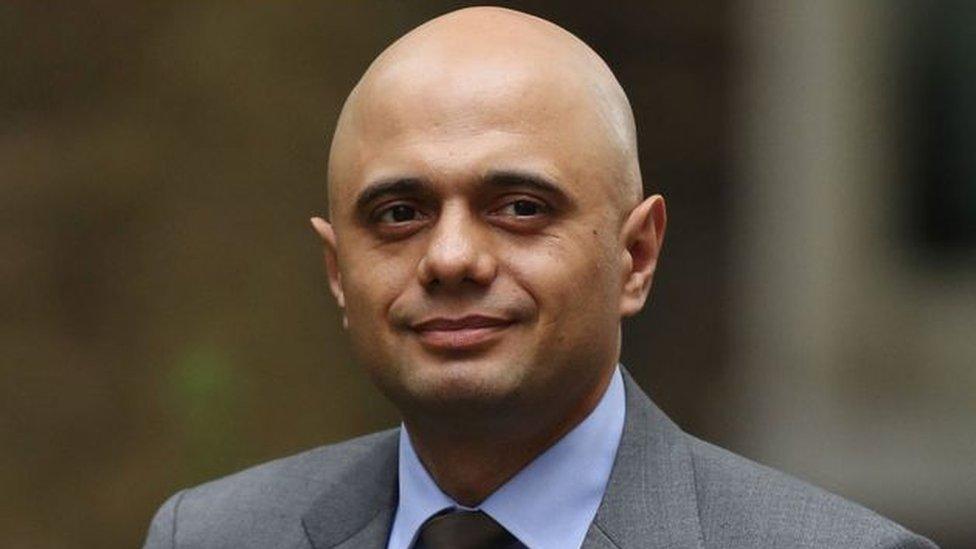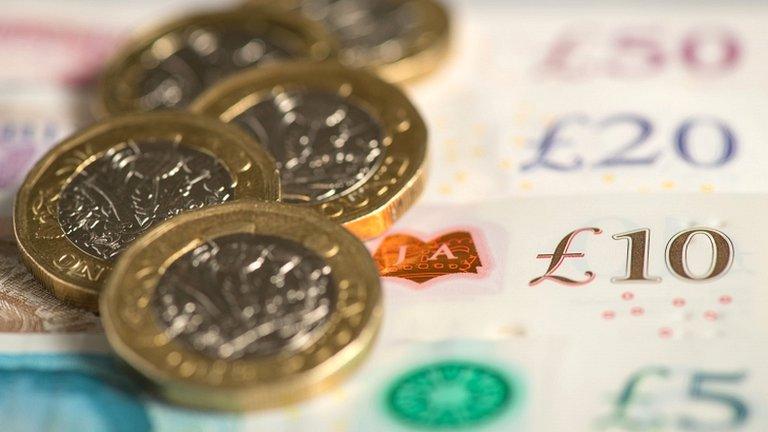Chancellor’s economic growth goal unrealistic, says think-tank
- Published
- comments

Chancellor Sajid Javid will deliver his first Budget in March
Chancellor Sajid Javid's goal of doubling the pace of economic growth has a one-in-five chance of success, an economic think-tank has warned.
He is aiming for growth of about 2.8% a year and will use next month's Budget to set out plans to achieve this.
But the National Institute of Economic and Social Research (Niesr) said hitting this growth rate, not seen since 2006, would be difficult.
Niesr forecasts growth of about 1.5% this year and the same in 2021.
"The chancellor's aim of raising growth towards the post-war average - nearly 3% - is quite unrealistic," said Arno Hantzsche, principal economist at Niesr.
To get there, growth in output per hour would need to average about 2.5% per year, Niesr said.
Official data to be published on the UK economy is expected to continue to show the sluggish pattern that typified last year.
Growth numbers for the last three months of 2019 are expected to be zero, but some economists think a contraction is possible. Those numbers were reflected in a torrid Christmas for many retailers.
But the question on everyone's lips is just how much confidence, activity and investment have turned a corner in this new year.
Survey measures are bouncing back from having indicated a contraction after greater political certainty. Hiring intentions are up even as unemployment remains at generational lows. Activity in the housing market has been unleashed.
Low recession risk
This was enough for the Bank of England to hold off on an interest rate cut last week. But the Niesr analysts suggests that the survey optimism, and a boost from public spending, will still be clouded by uncertainty around the Brexit trade negotiations.
Certainly in the industrial sector, we are no more certain about tariff conditions for the end of this year, after Prime Minister Boris Johnson rebranded ending the transition period with no trade deal as an "Australian-style" arrangement.
Like the Bank of England, Niesr is also sceptical about the chancellor's stated aim to lift economic growth to just under 3% per year. It anticipates about half that, although the risk of a recession is put at less than one-in-ten.
Meanwhile, global growth is expected to remain at 3% - the lowest in a decade, and that was before any potential economic impact of coronavirus was accounted for.
So, there are some signs of a pick-up in the economy. But they have not yet reached the hard data.
The really big economic news for the UK comes in the next few months: a new trade policy, new immigration policy, new regional policy and climate change adaptation.
All of which will amount to a "profound change" to the supply side of the UK economy, as outgoing Bank of England governor Mark Carney put it last week.
- Published3 February 2020
- Published3 February 2020
- Published31 January 2020

